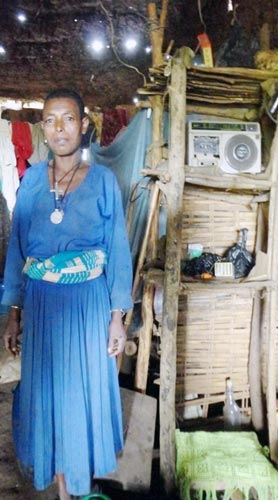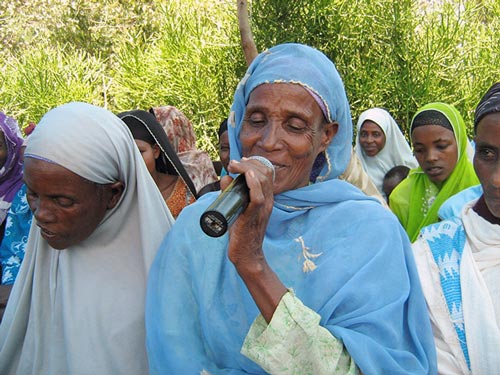By Seifu Mahifere/CIMMYT
The Nutritious Maize for Ethiopia project (NuME) has launched a series of participatory radio campaigns in the country’s regional states as an innovative approach to spread messages about protein and nutrition, with a special focus on quality protein maize (QPM), to Ethiopian small-scale farmers.

The campaign is a major part of the NuME communications strategy, which is designed to help the project improve household income as well as food and nutritional security, especially among women and children. NuME’s focus is the adoption of QPM and crop management practices that increase farm productivity.
The programs were launched in March 2013 and are broadcast in Amharic, Oromiffa and Tigrigna – three of the major languages spoken in Ethiopia. The first series focused on giving mothers information to improve their children’s health through balanced, nutritious diets, as a lead-up to the introduction of QPM varieties. Follow-up campaigns will target male and female growers of hybrid maize and cover QPM, intercropping and other agronomic practices that will benefit small-scale farmers.
Transmitted in collaboration with three regional broadcasting stations, the 30-minute programs are aired weekly at 8:00 p.m., when families are often home and eating dinner. The success of the radio campaign is bolstered by training given to a select group of journalists on various aspects of QPM. Program content is also generated by a content advisory panel that includes NuME partner representatives and agriculture researchers focused on protein, CIMMYT staff (including a gender specialist), staff members from the Ethiopian Institute of Agricultural Research and Ministry of Agriculture, nutrition specialists from the Ethiopian Health and Nutrition Research Institute and universities, communications experts and seed enterprise representatives.

Gender considerations also shape program content, and Farm Radio International (FRI), an international NGO and NuME partner, has secured female broadcasters for the NuME shows, according to Frehiwot Nadew, FRI country director in Ethiopia. Radio remains the most trusted and most utilized communication medium in rural Ethiopia, and access to radio by small-scale farmers is very high. FRI’s participatory radio campaigns help small-scale farmers learn about, evaluate and benefit from low-cost, sustainable and productive farming practices.
The methodology has already been successful in trials with 25 radio stations in 5 countries in Africa. Data from those trials demonstrate that, on average, a participatory radio campaign will result in 21 percent of all farmers trying a new technology, such as QPM maize, in the first year within the broadcast area of the radio station producing the campaign. NuME is funded by the Department of Foreign Affairs, Trade and Development of the Government of Canada (DFATD).
 Capacity development
Capacity development